Good Talk by Mira Jacob
This is simply the best literary (in gorgeous graphic novel form) exploration of what it means to be an immigrant in the U.S. I’ve seen in years. Jacob talks about what being a parent in our current trash-fire of an age is like, what it means to have to explain racism and politics to her beautiful, Prince-loving child. She goes back into her own youth, growing up brown in America, the various pitfalls and pleasures of that experience in a way that brought it all back. I’m going to teach this one every chance I get; it says all the things.
Professor Chandra Follows His Bliss by Rajeev Balasubramanyam and Less by Andrew Sean Greer

 I’m pairing these because they have a strand of similarity in that male main characters go on long, joyous, terrifying journeys of self-discovery. They leave their abodes and step into the wild world and mayhem ensues. One of these books won the Pulitzer, the other got much less notice. I think the lesser known one should get so much more attention—read Prof Chandra; it’s fun and you’ll cry! I also really loved Greer’s descriptions of what it means to live in a writer’s brain. Greer’s made it okay to have a main character who’s a writer again.
I’m pairing these because they have a strand of similarity in that male main characters go on long, joyous, terrifying journeys of self-discovery. They leave their abodes and step into the wild world and mayhem ensues. One of these books won the Pulitzer, the other got much less notice. I think the lesser known one should get so much more attention—read Prof Chandra; it’s fun and you’ll cry! I also really loved Greer’s descriptions of what it means to live in a writer’s brain. Greer’s made it okay to have a main character who’s a writer again.
In The Dream House by Carmen Maria Machado
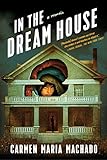 This is just gorgeous and smart and beautiful and scary. Machado has pretty much put dynamite under the house of genre and blown it up. Not to mention she’s taken up the topic of domestic violence within the LGBTQ community in a way that has barely been addressed. She’s written into the void. I’m sure this book will end up on many writers’ lists in this very column, a feat considering it just came out. But many of us have been waiting for this book and it does not disappoint.
This is just gorgeous and smart and beautiful and scary. Machado has pretty much put dynamite under the house of genre and blown it up. Not to mention she’s taken up the topic of domestic violence within the LGBTQ community in a way that has barely been addressed. She’s written into the void. I’m sure this book will end up on many writers’ lists in this very column, a feat considering it just came out. But many of us have been waiting for this book and it does not disappoint.
The Body Papers by Grace Talusan and The Butterfly Girl by Rene Denfeld
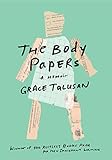
 Both of these deal with bodily trauma in brilliant and beautiful ways. Talusan’s book is a memoir of growing up Filipina with all the secrecy and fear that attends immigrant families attempting to fit into the America Dream. Denfeld’s thriller takes us on a wild ride on the streets of Portland and forces us to confront what happens to the street kids we pass every day. Two powerful, truth-telling books.
Both of these deal with bodily trauma in brilliant and beautiful ways. Talusan’s book is a memoir of growing up Filipina with all the secrecy and fear that attends immigrant families attempting to fit into the America Dream. Denfeld’s thriller takes us on a wild ride on the streets of Portland and forces us to confront what happens to the street kids we pass every day. Two powerful, truth-telling books.
The Art of Fiction by John Gardner
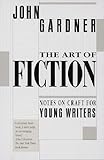 I return to this when writing feels particularly hard. It doesn’t make the writing any less hard but it makes me feel like I’m less alone, like I’m part of this strange, wonderful group of people whose deepest life and deepest loves are literary.
I return to this when writing feels particularly hard. It doesn’t make the writing any less hard but it makes me feel like I’m less alone, like I’m part of this strange, wonderful group of people whose deepest life and deepest loves are literary.
The Perfect Nanny by Leila Slimani
 This is a strange and wonderful book about immigration, class, aging, gender. Its resonance is eerie and horrific. Who’s watching the kids? Who has to watch the kids because there are no other options? So much here.
This is a strange and wonderful book about immigration, class, aging, gender. Its resonance is eerie and horrific. Who’s watching the kids? Who has to watch the kids because there are no other options? So much here.
Beyond Guilt Trips: Mindful Travel in an Unequal World by Anu Taranath
 This book is changing the conversation around what it means to lead privileged American students into the wider world in a respectful way. As someone who now and then takes writing students abroad, I found it essential.
This book is changing the conversation around what it means to lead privileged American students into the wider world in a respectful way. As someone who now and then takes writing students abroad, I found it essential.
Ghostland: An American History of Haunted Places by Colin Dickey
 I really love this strange book that one of my most well-read friends recommended. It takes on the idea of haunting as the uncanny caused by quirks in architecture as well as the way history itself leaves trace markers on place. The premise is that a place is haunted by its emotional, social history—and I am on board.
I really love this strange book that one of my most well-read friends recommended. It takes on the idea of haunting as the uncanny caused by quirks in architecture as well as the way history itself leaves trace markers on place. The premise is that a place is haunted by its emotional, social history—and I am on board.
Agatha Christie: A Mysterious Life by Laura Thompson
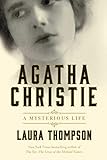 I love Christie; she’s the grande dame of the mystery and the thriller and every now and then I like to immerse myself in a huge bath of a book about a writer’s life. This book brought Christie to life in a way that I could imagine looking up and finding her in the armchair in front of me. It pays special attention to the mysterious episode in which she went missing in reaction to her first husband’s claim that he was leaving her for another woman. It was the scandal of the day and for weeks all of England was looking for her. Not many writers’ lives live up to the drama of their literary work, Christie’s at least in that episode, certainly does.
I love Christie; she’s the grande dame of the mystery and the thriller and every now and then I like to immerse myself in a huge bath of a book about a writer’s life. This book brought Christie to life in a way that I could imagine looking up and finding her in the armchair in front of me. It pays special attention to the mysterious episode in which she went missing in reaction to her first husband’s claim that he was leaving her for another woman. It was the scandal of the day and for weeks all of England was looking for her. Not many writers’ lives live up to the drama of their literary work, Christie’s at least in that episode, certainly does.
No Visible Bruises: What We Don’t know About Domestic Violence Can Kill Us by Rachel Louise Snyder
 I thought I understood DV but this book really shook that belief. For example, did you know that many domestic violence victims (primarily female) sustain traumatic brain injures that can affect their ability to have jobs, read, drive—basically every necessary skill? These injuries are often overlooked even when victims go to the doctor. Studies say DV survivors may have traumatic brain injuries at the same rate as athletes and returning soldiers. It’s a silent unseen epidemic. That’s just one piece of this book that stayed with me.
I thought I understood DV but this book really shook that belief. For example, did you know that many domestic violence victims (primarily female) sustain traumatic brain injures that can affect their ability to have jobs, read, drive—basically every necessary skill? These injuries are often overlooked even when victims go to the doctor. Studies say DV survivors may have traumatic brain injuries at the same rate as athletes and returning soldiers. It’s a silent unseen epidemic. That’s just one piece of this book that stayed with me.
Motherhood by Sheila Heti
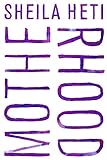 I’m not confused about the question of motherhood in the way Heti’s main character is. I’ve never wanted children and as I get older I’m much more rooted in that decision. Yet it was such an enjoyment to read this book, to follow the meditations of the character as she wandered through the labyrinth of cultural pressure, bodily desire, and the call of deep solitude. I’m in love with Heti’s brain and her prose. This is the work of a deeply thoughtful writer.
I’m not confused about the question of motherhood in the way Heti’s main character is. I’ve never wanted children and as I get older I’m much more rooted in that decision. Yet it was such an enjoyment to read this book, to follow the meditations of the character as she wandered through the labyrinth of cultural pressure, bodily desire, and the call of deep solitude. I’m in love with Heti’s brain and her prose. This is the work of a deeply thoughtful writer.
Pleasure Activism: The Politics of Feeling Good by adrienne maree brown
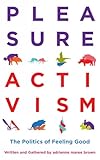 This book is essential, life-affirming, life-supporting reading for our moment. It reclaims joy, freedom, most especially for people of color. It marries theory, politics, social activism, and so much more. I felt my toes curling with pleasure reading these pages and learning and relearning lessons about revolution starting with the self, about “self-care” being part of activism. Bonus: beautiful essays about surviving and claiming self and thriving by personal sheroes, Amita Swadhin and Leah Lakshmi Piepzna-Samarasinha.
This book is essential, life-affirming, life-supporting reading for our moment. It reclaims joy, freedom, most especially for people of color. It marries theory, politics, social activism, and so much more. I felt my toes curling with pleasure reading these pages and learning and relearning lessons about revolution starting with the self, about “self-care” being part of activism. Bonus: beautiful essays about surviving and claiming self and thriving by personal sheroes, Amita Swadhin and Leah Lakshmi Piepzna-Samarasinha.
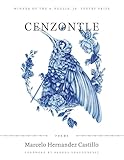
 Finally, I don’t read much poetry. Probably because I am intimidated by the purest form. This year I steeped myself in two gorgeous books of poetry, Cenzontle by Marcelo Hernandez Castillo and Scratching the Ghost by Dexter L Booth (I mean, just those two titles, right?!) and I am so much the better for it.
Finally, I don’t read much poetry. Probably because I am intimidated by the purest form. This year I steeped myself in two gorgeous books of poetry, Cenzontle by Marcelo Hernandez Castillo and Scratching the Ghost by Dexter L Booth (I mean, just those two titles, right?!) and I am so much the better for it.
More from A Year in Reading 2019
Don’t miss: A Year in Reading 2018, 2017, 2016, 2015, 2014, 2013, 2012, 2011, 2010, 2009, 2008, 2007, 2006, 2005









